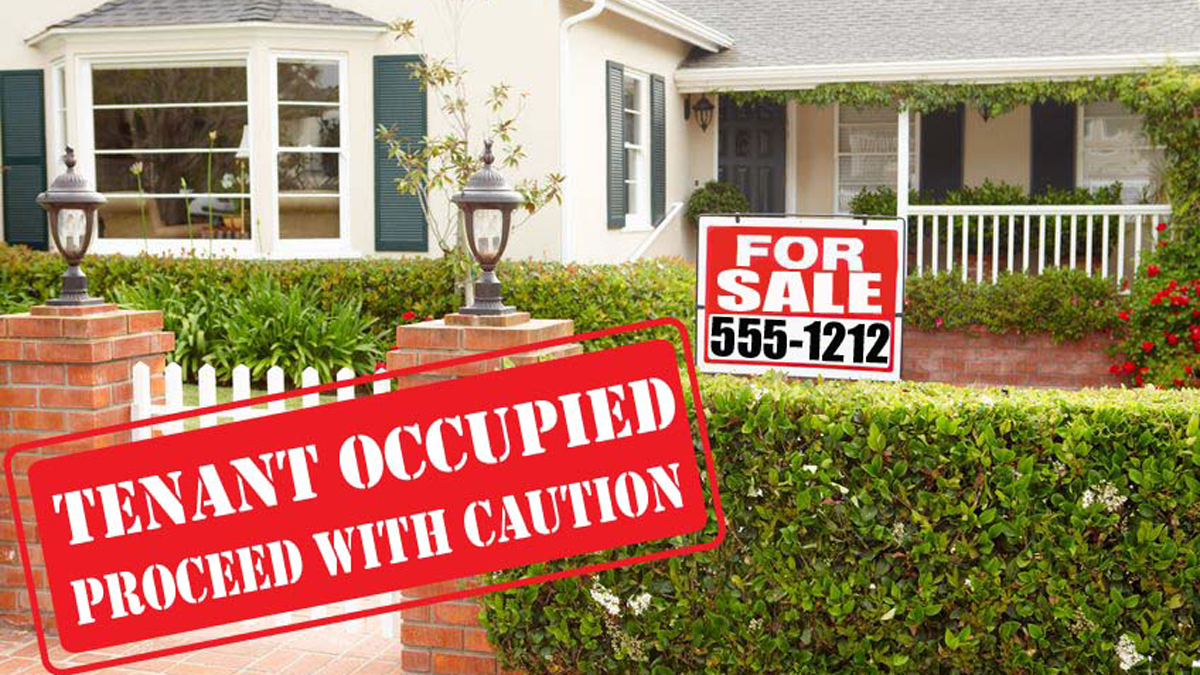With the South Florida real estate market booming, many sellers are listing and selling their properties while having a tenant occupying them, in active, unexpired leases. What happens then when the buyer submits a contract to purchase a property that is currently leased by a tenant? Can a new buyer take over the residential lease? The answer is yes — and it’s simple, as long as you have a good attorney on your side.
Residential lease contracts are assignable from landlord to new landlord. What this means is that the buyer, at closing, will step into the shoes of the seller, as landlord, on the lease. However, for this to happen, the buyer’s attorney needs to make sure that the seller prepares and signs an assignment of lease at closing to transfer those rights under the lease to the new buyer. It is also prudent to make sure, post-closing, that the new buyer sends a copy of that assignment with a letter introducing themselves to the tenant and directing where new rental payments should be made moving forward.
It is also crucial to make sure that the buyer’s attorney or title company obtains a copy of the lease from the seller prior to closing to review the terms, as well as review what deposits are being held by the seller. A form setting forth all this, called a “tenant estoppel,” is usually prepared by the buyer’s attorney and sent to the seller or their agent for the tenant to prepare and confirm what amounts he or she has prepaid. The numbers on this estoppel form will then be matched up alongside the closing statement to make sure all credits are provided accurately.
The buyer’s attorney will also make sure the security deposit, as well as the current month’s rent proration, are both credited to the buyer on the closing statement, and all prepaid rent appear as credits to the buyer at closing. After closing, when the tenant moves out, they will look to the buyer, who is now the new owner, to return the security deposit to them. Therefore, making sure the credits are accurately reflected on the closing statement is crucial.
Lastly, the buyer wants to make sure the tenant is up to date with the rent and not buying into an eviction. With Centers for Disease Control and Prevention (CDC) moratoriums set to be lifted on July 1, 2021, evictions are once again picking up — and no buyer wants to find themselves in this predicament right after closing and spending money on attorney’s fees to have to evict a tenant on a newly acquired property.
With all this mind, it is crucial to make sure you hire the right real estate lawyer/title company to represent you, as either buyer or seller, to make sure all these items and anything else that comes up at closing are addressed and your interests are protected. After closing, it may prove impossible to find the seller or correct these issues if mistakes were made.
As a real estate lawyer, title company and business law firm, we represent not only buyers and sellers in their real estate transactions but have an entire litigation department devoted solely to handling landlord/tenant evictions and any issues that may arise post-closing. Whether you have escrow disputes, property condition disputes or mold issues, with over 23 years’ experience, Jacqueline A. Salcines, Esq., and her staff are here to help. Don’t go it alone! Call 305.669.5280 to see how we can best assist you.









 Deering Estate
Deering Estate
 Massage Envy South Miami
Massage Envy South Miami
 Calla Blow Dry
Calla Blow Dry
 My Derma Clinic
My Derma Clinic
 Sushi Maki
Sushi Maki
 Sports Grill
Sports Grill
 The Healthy Kitchen
The Healthy Kitchen
 Golden Rule Seafood
Golden Rule Seafood
 Malanga Cuban Café
Malanga Cuban Café

 Kathleen Ballard
Kathleen Ballard
 Panter, Panter & Sampedro
Panter, Panter & Sampedro
 Vintage Liquors
Vintage Liquors
 The Dog from Ipanema
The Dog from Ipanema
 Rubinstein Family Chiropractic
Rubinstein Family Chiropractic
 Your Pet’s Best
Your Pet’s Best
 Indigo Republic
Indigo Republic




 ATR Luxury Homes
ATR Luxury Homes


 2112 Design Studio
2112 Design Studio
 Hamilton Fox & Company
Hamilton Fox & Company
 Creative Design Services
Creative Design Services
 Best Pest Professionals
Best Pest Professionals
 HD Tree Services
HD Tree Services
 Trinity Air Conditioning Company
Trinity Air Conditioning Company
 Cisca Construction & Development
Cisca Construction & Development
 Mosquito Joe
Mosquito Joe
 Cutler Bay Solar Solutions
Cutler Bay Solar Solutions


 Miami Royal Ballet & Dance
Miami Royal Ballet & Dance
 Christopher Columbus
Christopher Columbus
 Pineview Preschools
Pineview Preschools
 Westminster
Westminster
 Carrollton
Carrollton
 Lil’ Jungle
Lil’ Jungle
 Frost Science Museum
Frost Science Museum
 Palmer Trinity School
Palmer Trinity School
 South Florida Music
South Florida Music
 Pinecrest Orthodontics
Pinecrest Orthodontics
 Dr. Bob Pediatric Dentist
Dr. Bob Pediatric Dentist
 d.pediatrics
d.pediatrics
 South Miami Women’s Health
South Miami Women’s Health

 The Spot Barbershop
The Spot Barbershop
 My Derma Clinic
My Derma Clinic




 Miami Dance Project
Miami Dance Project

 Rubinstein Family Chiropractic
Rubinstein Family Chiropractic
 Indigo Republic
Indigo Republic

 Safes Universe
Safes Universe
 Vintage Liquors
Vintage Liquors
 Evenings Delight
Evenings Delight





 Atchana’s Homegrown Thai
Atchana’s Homegrown Thai
 Baptist Health South Florida
Baptist Health South Florida

 Laser Eye Center of Miami
Laser Eye Center of Miami
 Visiting Angels
Visiting Angels
 OpusCare of South Florida
OpusCare of South Florida

 Your Pet’s Best
Your Pet’s Best





 HD Tree Services
HD Tree Services
 Hamilton Fox & Company
Hamilton Fox & Company


 Creative Design Services
Creative Design Services